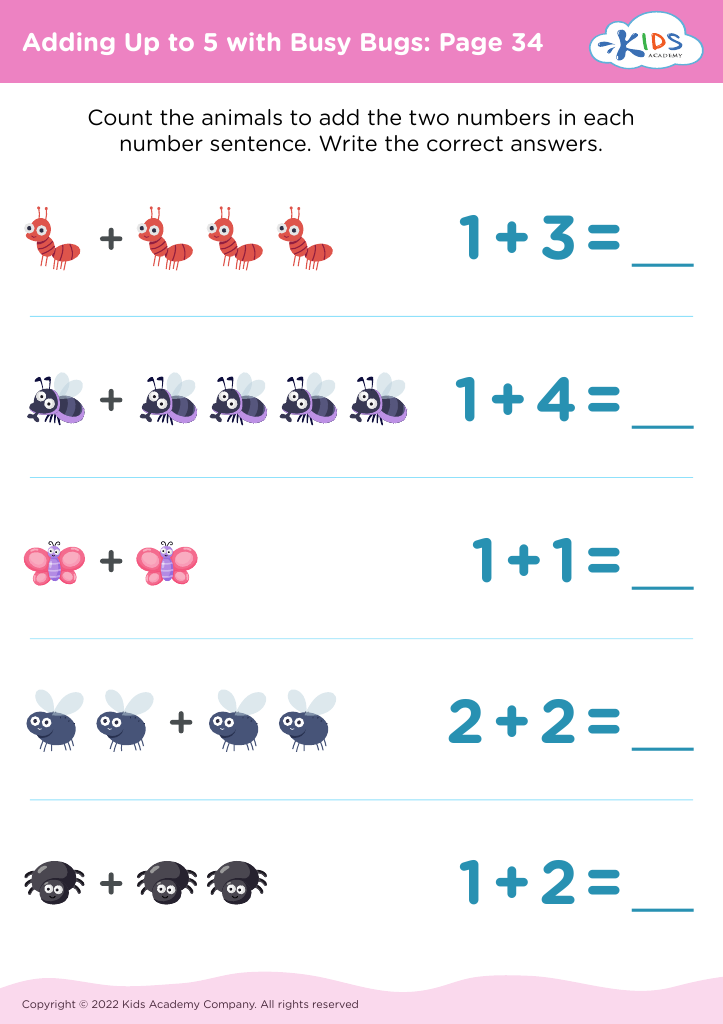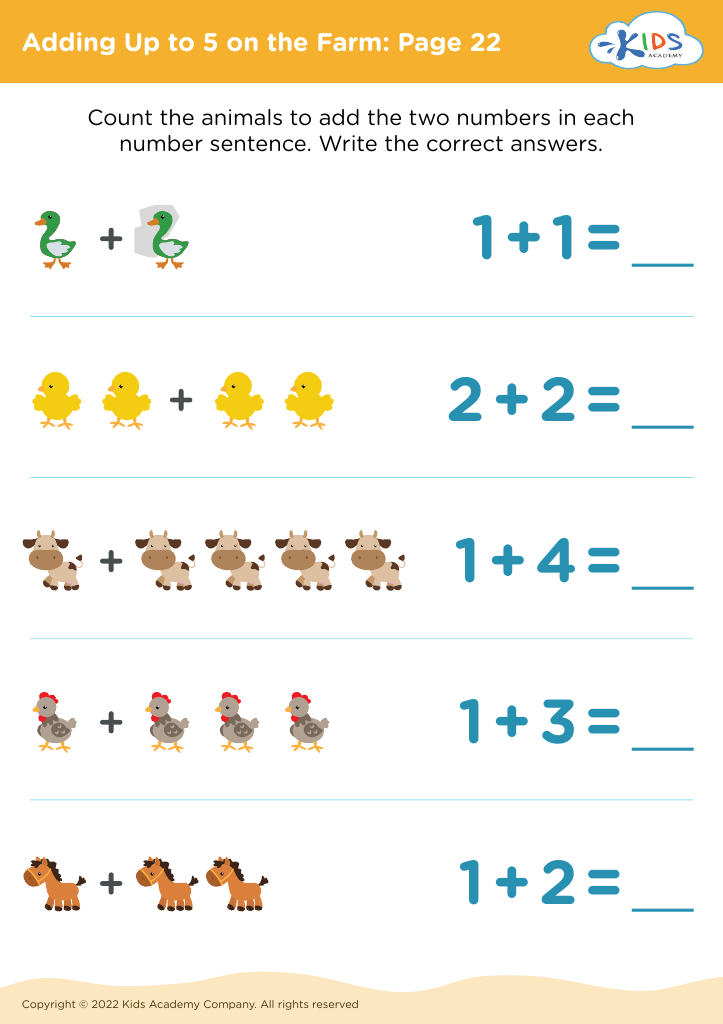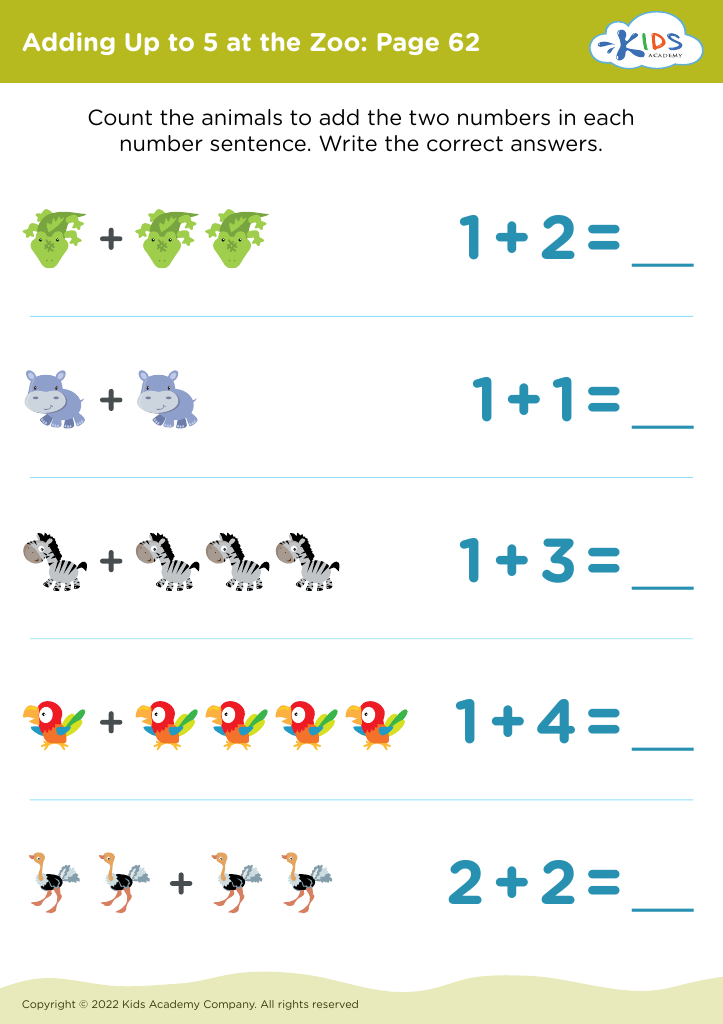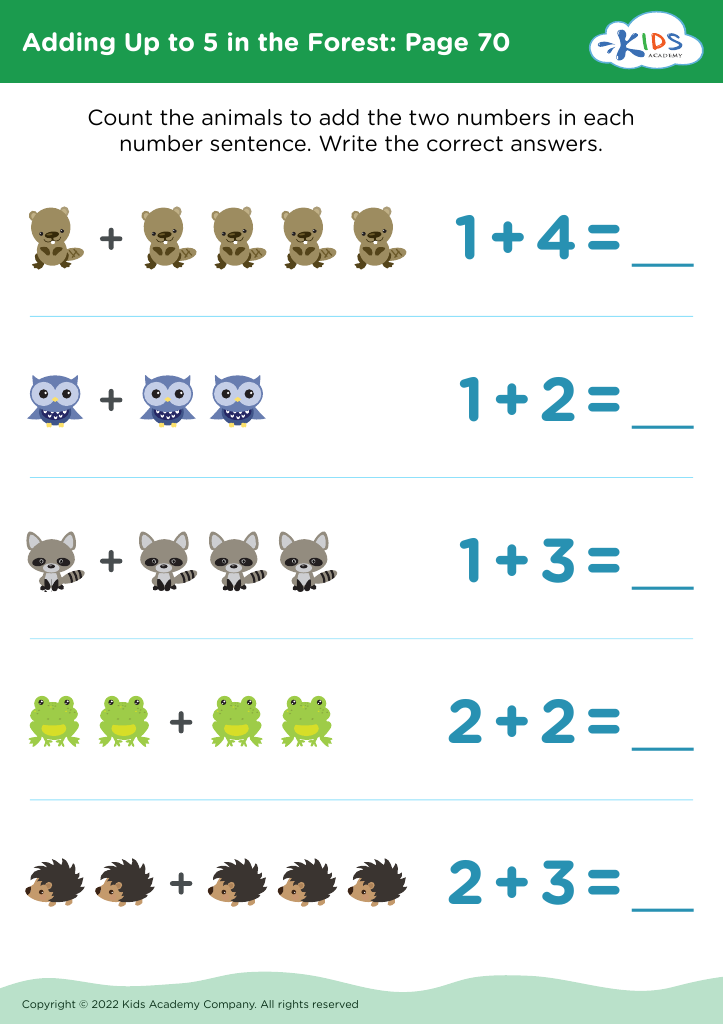Enhancing focus Addition & Subtraction Worksheets for Ages 4-5
4 filtered results
-
From - To
Unlock your child's mathematical potential with our "Enhancing Focus Addition & Subtraction Worksheets for Ages 4-5." Carefully designed to improve concentration and listening skills, these engaging worksheets make learning fun for young minds. Each exercise combines vibrant visuals with simple addition and subtraction problems to captivate your child’s interest while laying a strong foundation in math. Cultivate early arithmetic skills and focus abilities as your little one embarks on an exciting educational journey! Ideal for home or classroom use, these worksheets turn learning challenges into rewarding accomplishments. Visit our page today to ignite a love for math in your child!
Enhancing focus in addition and subtraction for ages 4-5 is pivotal for several reasons. At this developmental stage, children are incredibly receptive to learning foundational skills that will support their future academic success. Emphasizing focus in these early math concepts helps to build essential cognitive abilities like problem-solving, logical thinking, and concentration. These skills are not only critical for math but also for other subjects and everyday situations.
In addition, early mastery of basic arithmetic sets a positive foundation for a child's attitude towards math in the long run. By making learning engaging and manageable, we can alleviate potential frustration and anxiety associated with the subject. This early intervention helps ensure that children do not fall behind their peers, avoiding a negative cycle of learning difficulties that can be hard to break.
Furthermore, enhancing focus in math for young children helps in developing persistence and a sense of accomplishment. When kids realize they can solve problems independently, it boosts their confidence and encourages a growth mindset.
Lastly, incorporating focus strategies into math learning can seamlessly integrate essential motor skills and coordination through activities like counting with physical objects, which is vital for overall development at this age. Overall, fostering attention in these early math skills lays a comprehensive groundwork not just for future mathematical learning, but for holistic intellectual and emotional growth.





















